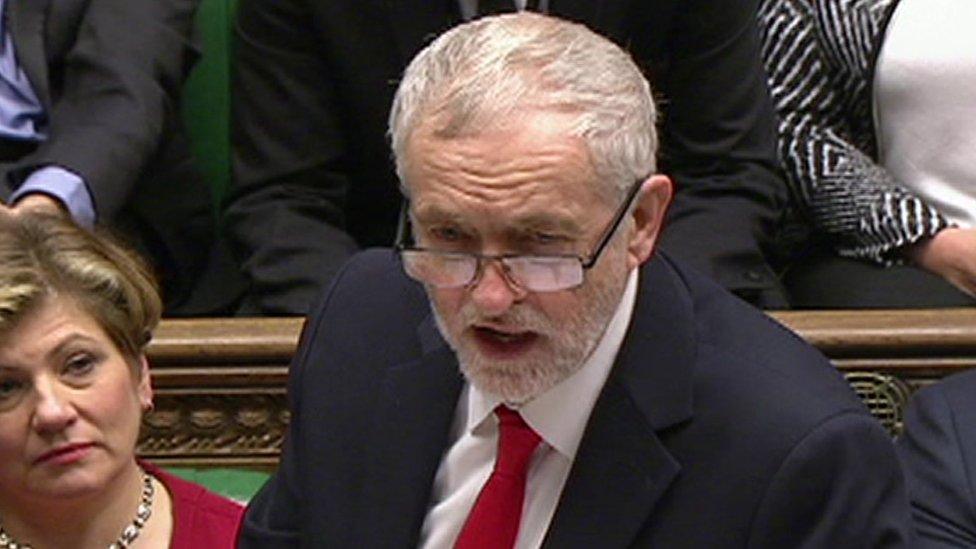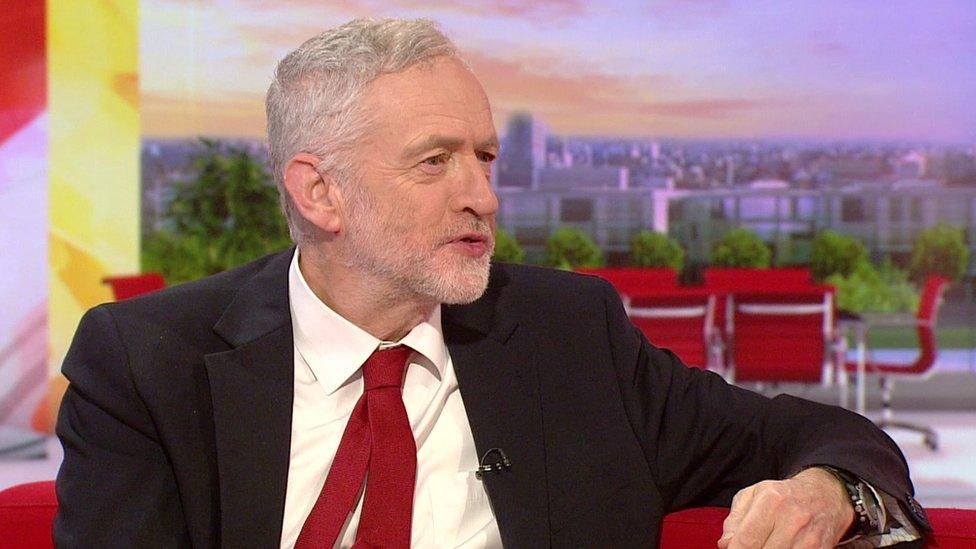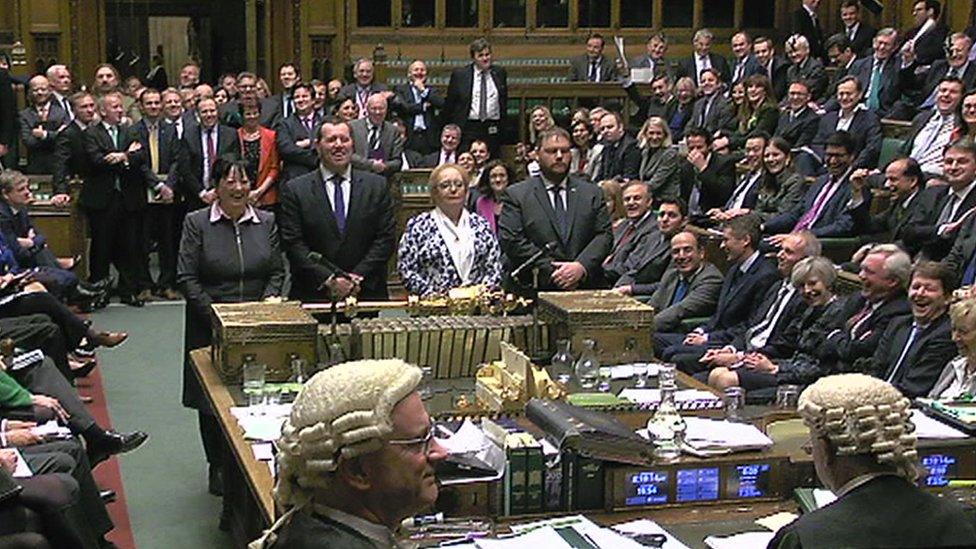Corbyn replaces Lewis in shadow cabinet reshuffle
- Published

Labour leader Jeremy Corbyn has appointed Rebecca Long-Bailey as shadow business secretary, as he reshuffled the shadow cabinet.
Sue Hayman takes the environment, food and rural affairs brief, while Christina Rees becomes shadow Welsh secretary.
The new shadow chief secretary to the Treasury is Peter Dowd.
The business brief became vacant when Clive Lewis resigned on Wednesday to oppose his party in the Brexit vote.
Other shadow cabinet members remain in place.
The four newly-promoted MPs are all part of the party's 2015 intake.
Ms Long-Bailey, MP for Salford and Eccles, was previously shadow chief secretary to the Treasury and was described by Shadow Chancellor John McDonnell as a "brilliant" member of the "next generation of our socialist leadership team" last week.
Ms Hayman, MP for Workington in West Cumbria, was a shadow environment minister before her promotion, while Ms Rees, MP for Neath, was a shadow justice minister. Mr Dowd is MP for Bootle.
Ms Rees and Ms Hayman both nominated Owen Smith in his unsuccessful challenge to Mr Corbyn's leadership in 2016.
There are now 14 women in Mr Corbyn's 29-member shadow cabinet.
The Labour Party said that more junior shadow ministerial roles would be filled "in due course".

Analysis
By Chris Mason, BBC political correspondent
What is striking about this announcement is not who has been appointed, and to which job - it is the leadership's approach to the frontbenchers among the 52 Labour rebels who defied Jeremy Corbyn in last night's vote on Brexit. Most of them tonight are still in a job, despite abandoning the collective responsibility of the party's official position and ignoring their leader. I understand it's unlikely there will be any sackings. This in itself is extraordinary, not least because among the rebels were three whips, the very people responsible for party discipline. It illustrates what you might call Jeremy Corbyn's human resources challenge. When you discount those who won't serve under him, and those who have but no longer do, his options are limited.

Mr Lewis announced his resignation from the party's front bench as MPs began voting for the final time on the Brexit bill on Wednesday.
In a letter to Mr Corbyn, he wrote that he was leaving the shadow cabinet "with a very heavy heart", but Labour had not won "the protections the people of this country need" during the Commons debates on Brexit.
Asked on the BBC about Mr Lewis's departure, Mr Corbyn said: "It's not a disaster.
"The majority of Labour MPs voted to trigger Article 50. Fifty-odd voted against it, mainly on the basis of their strong message from their own constituents."
Labour's chief whip Nick Brown will handle any disciplinary action to be taken against the 52 Labour MPs who rebelled against the party line and voted against the Brexit bill on Wednesday.
- Published9 February 2017

- Published8 February 2017
